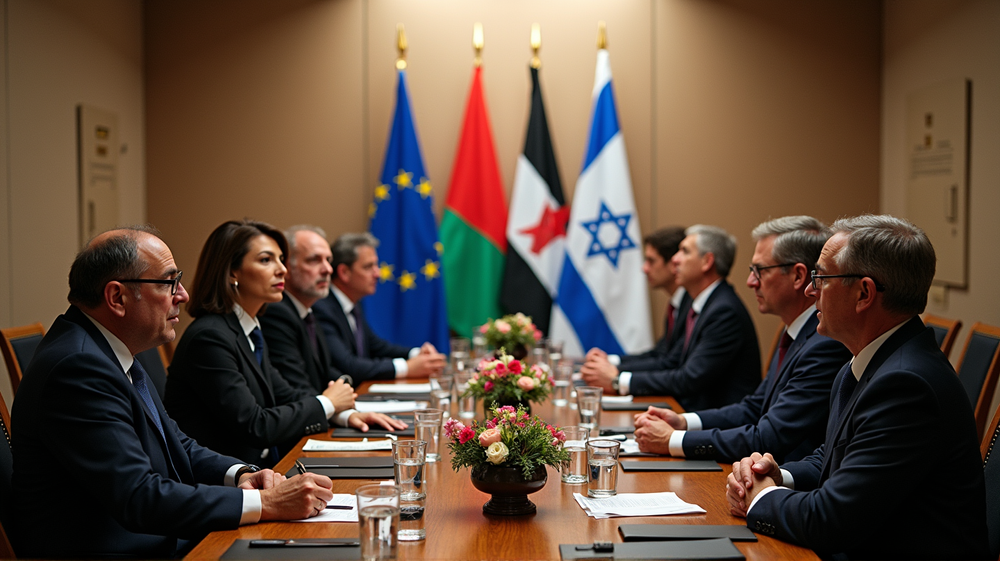In the intricate realm of international politics, the EU-Israel Association Agreement stands as a symbol of intertwining relations, where allegiance clashes with accountability. According to Middle East Monitor, this decades-old agreement with its foundational Article 2 has recently spurred debates stronger than ever, as the world watches the unfolding crisis in Gaza.
The Unspoken Pact: Article 2’s Role
Article 2 of the EU-Israel Association Agreement serves as both a guidepost and a tool of contention. It insists that mutual respect for human rights and democratic principles form the cornerstone of this partnership. As Israel’s military actions in Gaza continue, the spotlight on Article 2 grows ever brighter, posing difficult questions about the relationship between stated values and reality.
Shifting Stances Amid Stagnant Policies
The diplomatic rhetoric from European policymakers suggests a moral awakening. Yet, beneath the surface, bureaucracy ensures a slow and careful approach. High Representative Kaja Kallas voices the EU’s humanitarian intent, but critics argue that the policies crafted appear more like procedural dances than genuine interventions.
Israel’s Complex Narrative
Amidst international criticism, Israeli narratives of security and self-defense remain steadfast. The portrayal of its situation as ‘complex’ seeks to forestall straightforward international scrutiny. However, critics assert that this complexity is an exercise in deflecting attention from ongoing humanitarian concerns in Gaza.
Behind the Diplomatic Curtain: EU’s Complicity
The delicate waltz between diplomacy and human rights often leaves the EU exposed to accusations of complicity. Observers question whether the EU’s position offers tacit approval to Israeli actions, further complicating its professed commitment to human rights. The intricate choreography of diplomacy leaves the onus on EU leaders to reflect upon their policies and impacts.
Confronting the Colonial Reality
The dialogue surrounding the EU-Israel relationship demands a deeper understanding of colonial dynamics at play. As conversations shift from diplomatic formalities to real-world impacts, the question remains: Can the EU challenge its own structures and narratives that enable ongoing tensions and conflict? According to experts, truly confronting these issues would require unprecedented acknowledgment and reform.
As leaders and policymakers continue to navigate this complex diplomatic narrative, the world must watch closely and critically, assessing not only the words spoken but the actions taken. The dance between bureaucracy and accountability continues, with humanity’s stakes etched deeply into its rhythms.












